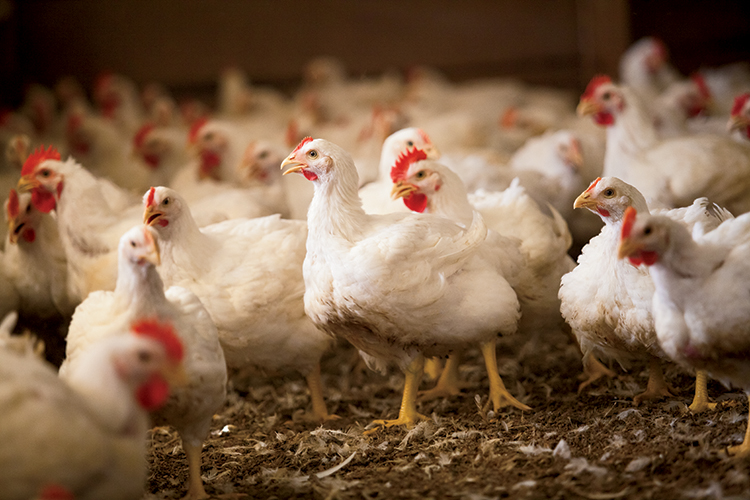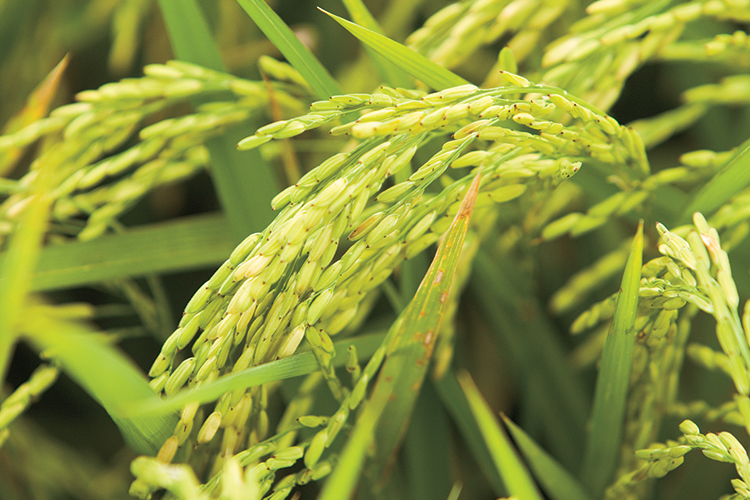Home > Arkansas > Arkansas Farm to Table > Part of the Family
Part of the Family

Arkansas farmers help feed the world, sending food, fuel and fiber across the globe. While the Natural State thrives as a major agricultural exporter, those farmers are equally concerned with making sure families throughout the state, including their own, have food on their plates, clothes on their backs and a roof over their heads.
Of the 44,600 farms spread across Arkansas’s diverse landscape, 97 percent are family owned. That family presence can be felt in every aspect of the state’s agriculture industry, through farms that have been passed down for many generations, youth livestock shows, fairs and events, or community farmers markets. Farmers are no different from teachers working in schools across the state or local newspaper reporters, eager to share their knowledge and passion while going about their daily lives.
Arkansas offers a variety of opportunities for consumers to learn more about where their food, fiber and fuel come from. Agritourism destinations abound, featuring U-pick farms, wineries and vineyards, pumpkin patches, hayrides, farm tours, farmers markets, harvest festivals and more.
Along with agritourism adventures, Arkansas’s top commodity producers keep their focus on consumers. Soybeans are the No. 2 commodity in the state, and the product is used in everything from makeup and fuel for cars to cooking oil. Each November, the Arkansas Soybean Promotion Board celebrates Arkansas Soybean Month, educating consumers on the importance of the crop, why they should care and how they can support the industry.
Programs like Arkansas Grown, developed by the Arkansas Agriculture Department, help in this aspect as well, educating consumers on Arkansas-grown and -made products, including fresh produce, meats and processed foods. These products are made by Arkansas families for Arkansas families, because farmers are consumers, too.
![Arkansas Family Farm Size [INFOGRAPHIC]](https://eadn-wc01-4177395.nxedge.io/wp-content/uploads/2020/05/Screen-Shot-2015-03-03-at-2.56.26-PM.png)
Bloggers Go Local
Arkansas bloggers were treated to a taste of agriculture at the 2014 Farm2Home event, held at P. Allen Smith’s Moss Mountain Farm. Sponsored by the state’s Arkansas Grown and Arkansas Made programs, bloggers were introduced to local farmers and other representatives of the industry to promote eating and buying local.
The bloggers attended an enlightening panel with local farmers about the importance of public support, enjoyed a delicious local lunch, explored a private farmers market with samples and toured the farm. Rosemary Hallmark, of the Rosemary on the TV blog, said the event really made her think about all Arkansas has to offer, and how lucky they are to have the type of weather that allows them to produce food throughout the year.
Blogger Heather Disarro, of Heather’s Dish, said hearing how much farmers love growing food for the people really resonated with her.
“If that’s not the best reason to get my tail up on Saturdays and support local markets, then I don’t know what is,” she wrote in a post.
Learn more about the Arkansas Grown program and how you can support local farmers at arkansasgrown.org. Watch a video of the Farm2Home event at AR-agriculture.com.

Flock Stars
Arkansas broilers rule the roost. Topping the list of agricultural commodities, Arkansas typically raises 1 billion broilers per year. The state ranks No. 2 in the nation for boiler production, and No. 3 in poultry and egg production. The industry employs more than 36,500 Arkansans directly, totaling one in four of the state’s agricultural jobs.
Even more impressive, broiler meat is Arkansas’s third largest export, bringing in around $532.6 million each year. The state is also the No. 2 exporter of broiler meat in the country. About 14 percent of the state’s poultry is exported to target markets, including Mexico, Russia and Japan.

A Mighty Grain
Known for its delicious versatility and nutritional benefits, rice is one important grain. As the No. 1 rice-producing state in the nation, Arkansas knows a thing or two about the crop.
The Natural State grows 50 percent of the nation’s rice crop on approximately 1.5 million acres each year. Rice serves as Arkansas’s top agricultural commodity. Annually, the grain brings more than $6 billion to Arkansas’s economy.
While rice is good for Arkansas, it’s also good for consumers’ diets. Rice contains no sodium, cholesterol or gluten, and has a very small amount of fat, with no trans or saturated fat. It’s also nutrient-dense and contains over 15 vitamins and minerals.
![Average Food Dollar [INFOGRAPHIC]](https://eadn-wc01-4177395.nxedge.io/wp-content/uploads/2020/05/Screen-Shot-2015-03-03-at-3.00.10-PM.png)
What’s In A Name?
Ever wonder what’s behind the name Arkansas?
The term literally means “south wind,” and the Native Americans that originally lived in the area were known as Quapaws.
Through word of mouth and different pronunciations, Arkansas was the final written term.
When the state was admitted to the Union in 1836, it was spelled as Arkansas.
A few decades later, an official committee created a resolution declaring the correct pronunciation of the last syllable, thus asserting that the state’s full name should be pronounced Ark-an-saw.



